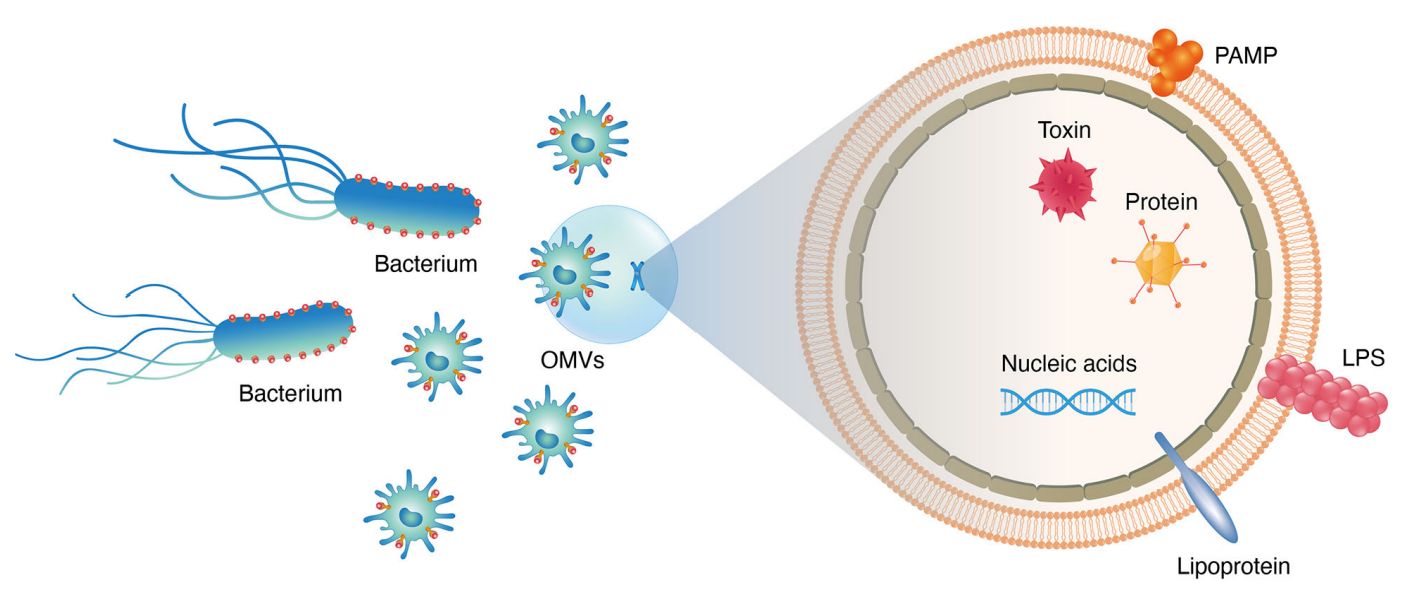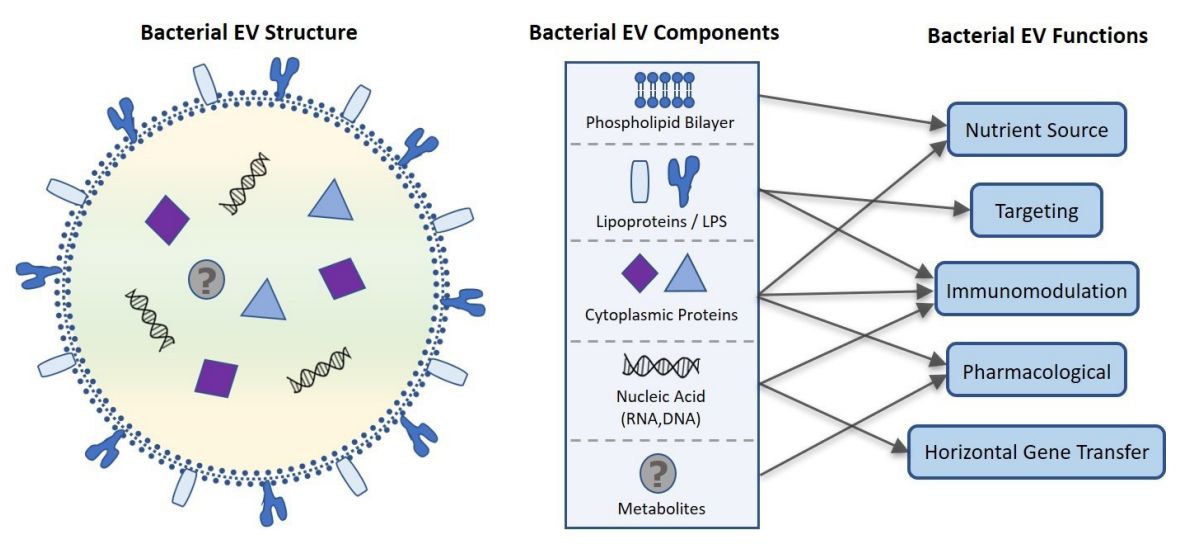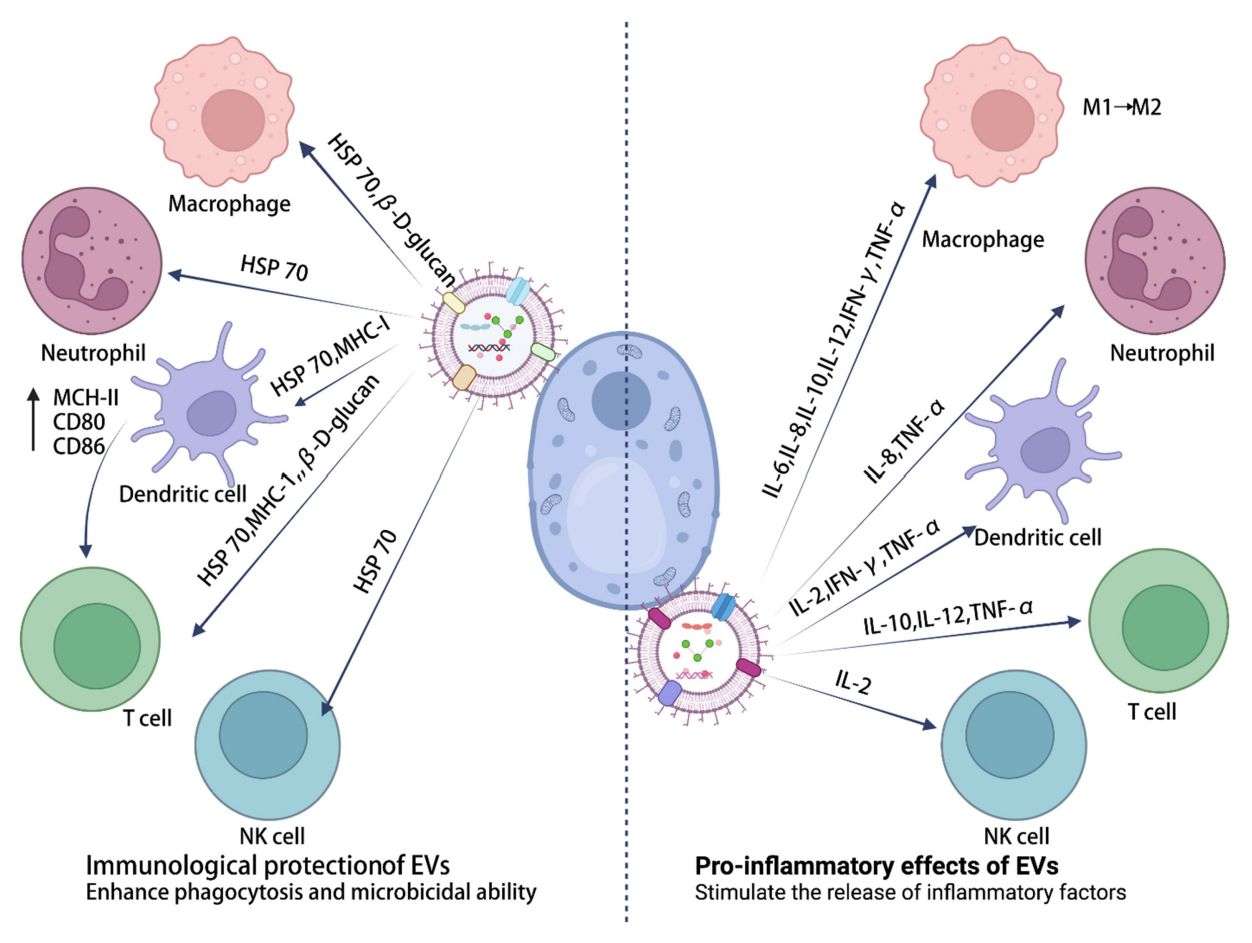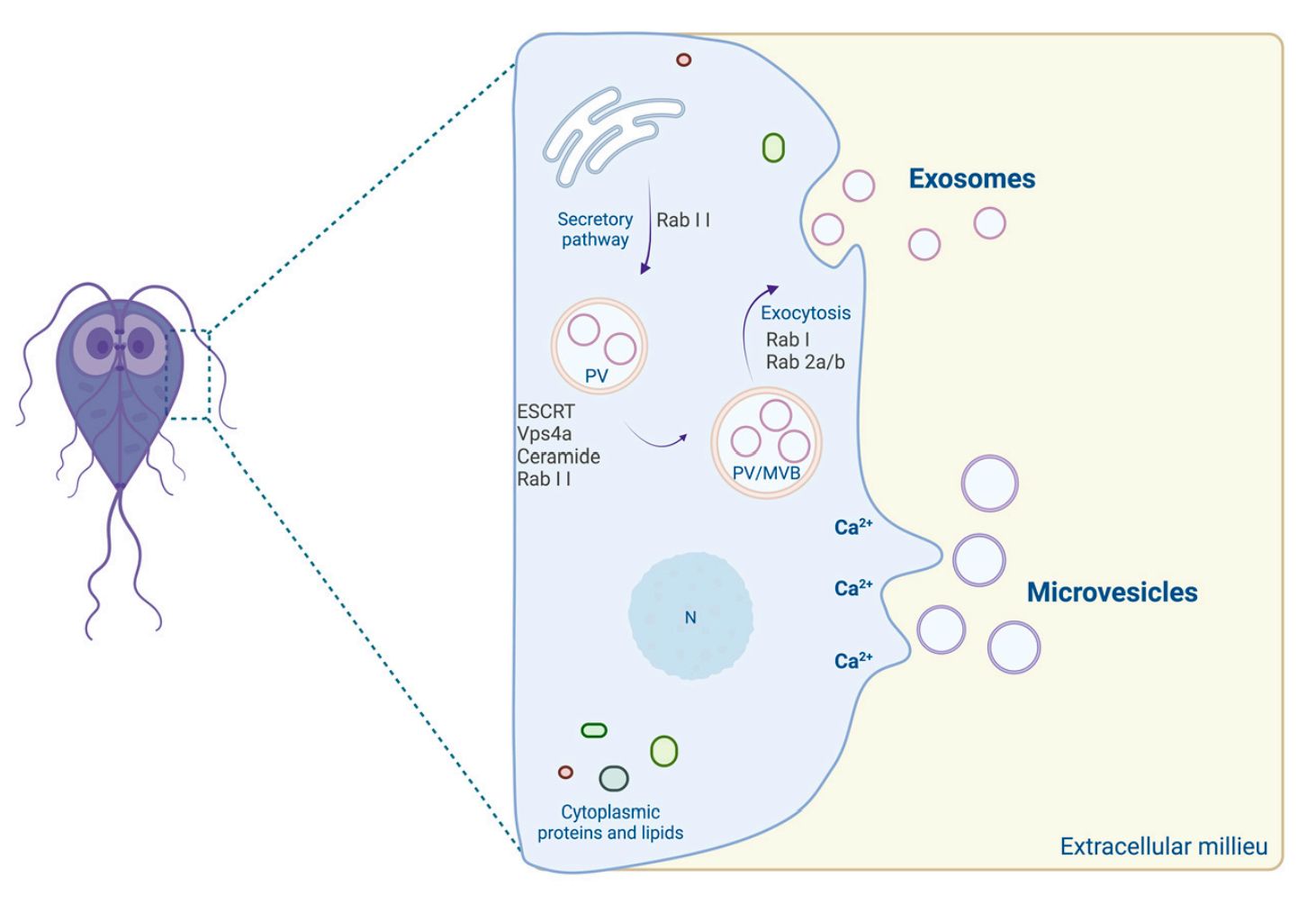What are Microbial-derived Exosomes?
Microbe-derived exosomes are extracellular vesicles secreted by microorganisms into the external environment that carry genetic information, proteins, and other active molecules. Depending on the source, microbe-derived exosomes can be categorized into bacterial-derived exosomes, fungal-derived exosomes, and protozoan-derived exosomes.
Why Study Microbial-Derived Exosomes?
In recent years, microbial-derived exosomes have important research value and application prospects. Microbial-derived exosomes can participate in the physiological and pathological processes of host cells, such as immune regulation, tissue healing, metabolism, reproduction, and development. In addition, it also has a variety of biological activities such as anti-inflammatory, promoting wound healing, skin repair, etc., which has a promising application in the fields of drug carriers, regenerative medicine, gene therapy, and medical aesthetic repair.
Compared with animal cell-derived exosomes, microbial-derived exosomes have advantages in terms of source, stability, tolerance, biocompatibility, and immunogenicity. Compared with plant-derived exosomes, microbial-derived exosomes have low cost, simple preparation process, high production efficiency, and easy mass production.
 Figure 1. Schematic of microbe-derived exosomes. (Ge Y, et al., 2023)
Figure 1. Schematic of microbe-derived exosomes. (Ge Y, et al., 2023)
Isolation and Characterization Process of Microbial-derived Exosomes
1. Inoculate the pathogenic bacteria and collect the culture fluid.
2. Centrifugation and filtration to remove the organisms.
3. Concentrate by ultrafiltration to enrich exosomes.
4. Ultracentrifuge to obtain exosome precipitate.
5. Wash the centrifuged exosome precipitate to remove impurities.
6. Morphology and size of exosomes by techniques such as electron microscopy.
7. Detection of signature proteins or other molecules of exosomes using specific antibodies or assays.
8. Relevant functional analyses of exosomes according to the purpose of the study.
Bacteria-derived Exosomes
Bacteria transmit information and regulate the stability and function of microbial communities by releasing exosomes. Bacteria-derived exosomes can transfer information between bacteria and between bacteria and hosts, and participate in bacterial growth and pathogenic processes. They can also pass antibiotic resistance genes and virulence factors through horizontal gene transfer, leading to the emergence of new pathogenic strains. In addition, bacterial-derived exosomes can influence the health status of the host and the occurrence of diseases by regulating the composition and function of the microbial community. In recent years, many important advances have been made in the study of bacterial-derived exosomes, which have a wide range of applications in microbiological research, disease diagnosis, and treatment. For example, to reveal the mechanism of microbial interactions; as specific biomarkers for early diagnosis and monitoring of diseases; and as vectors for delivery of antibiotics and other drugs for precision therapy and prevention of microbial infections.
 Figure 2. Bacterial extracellular vesicle composition and related functions. (Yang J, et al., 2018)
Figure 2. Bacterial extracellular vesicle composition and related functions. (Yang J, et al., 2018)
Fungus-derived Exosomes
Fungi play an increasingly important role in human health, biomedicine, industrial fermentation, agricultural production, and environmental protection. In addition to causing a wide range of invasive fungal diseases, they can cause inflammatory responses and tissue damage. Many fungi can also be used to produce clinically necessary antibiotics, antitumor drugs, lipid-lowering drugs, and immunomodulators, which are important means of treating a variety of human diseases. A growing body of research suggests that exosomes are important in the survival and functioning of fungi. Fungus-derived exosomes contain a variety of bioactive substances that play a key role in the physiological regulation of organisms and disease development. For example, fungal pathogens can transmit small RNA molecules to host cells via exosomes during the invasion process, inducing host immune gene silencing, thus favoring fungal invasion and survival. On the other hand, exosomes have the property of inducing protection and have certain immunological potential.
 Figure 3. The immunologic potential of exosomes in fungal infections. (Lai Y, et al., 2023)
Figure 3. The immunologic potential of exosomes in fungal infections. (Lai Y, et al., 2023)
Protozoa-derived Exosomes
Parasitic diseases are important global problems that threaten human health. Evidence suggests that exosomes play an important role in intercellular communication between parasites and host cells. For example, the Trophozoite of T. vaginalis-derived exosomes modulate the host immune response and increase parasite attachment. Pre-flagellate-derived exosomes of L. donovani, L. major, and L. mexicana result in increased protein delivery and IL-8 in mouse macrophages. Furthermore, the use of protozoan-derived exosomes as disease biomarkers is very promising, both for diagnostic and prognostic purposes. For example, exosomes derived from the blood of chronic Chagas disease patients revealed the presence of T. cruzi antigens.
 Figure 4. Biogenesis of protozoa-derived exosomes. (Ferreira B, et al., 2022)
Figure 4. Biogenesis of protozoa-derived exosomes. (Ferreira B, et al., 2022)
What is Microbial Exomics?
Microbial exomics is an emerging field of research that studies the biological information carried by exosomes released by microorganisms. Exosomes are small vesicles secreted by cells, which contain a variety of molecules such as lipids, proteins, nucleic acids, etc., which can transfer information between cells and participate in the regulation of various biological processes. The emergence of microbial exosomeomics has revealed a new mechanism of information transfer between microorganisms and expanded people's understanding of microbial behavior. In addition, the properties of microbial exosomes make them a potential biomarker and therapeutic target. By analyzing microbial exosomes, researchers can identify markers for early-stage diseases and develop related diagnostic and therapeutic approaches.
Summarize
Microbe-derived exosomes play an important role in disease. On the one hand, microbe-derived exosomes can participate in the regulation and interference of the host immune system through the release of toxin molecules, thereby promoting the invasion of pathogenic microorganisms and the progression of disease. On the other hand, microbe-derived exosomes can also serve as carriers for delivering therapeutic drugs for the treatment of microbial infectious diseases. Therefore, an in-depth study of the mechanism of microbe-derived exosomes in diseases can help to better understand the onset and progression of diseases and provide new ideas and strategies for disease prevention and treatment.
Creative Biostructure specializes in the research and application development of microbe-derived exosomes. We have mastered a variety of exosome preparation methods, such as differential ultracentrifugation (dUC)、size-exclusion chromatography (SEC)、polymer precipitation、density gradient centrifugation (DGC)、immunoaffinity (IA)、microfluidics (MF), and ultrafiltration (UF), to isolate exosomes from bacteria, fungi, and parasites, and provide downstream purification, characterization, engineering, and analytical services. If you are interested in our exosome isolation services, please do not hesitate to contact us.
References
- Ge Y, et al. Bacteria derived extracellular vesicles in the pathogenesis and treatment of gastrointestinal tumours. Front Oncol. 2023. 12: 1103446.
- Yang J, et al. Microbe-derived extracellular vesicles as a smart drug delivery system. Transl Clin Pharmacol. 2018. 26(3): 103-110.
- Lai Y, et al. The emerging role of extracellular vesicles in fungi: a double-edged sword. Front Microbiol. 2023. 14: 1216895.
- Ferreira B, et al. Protozoa-Derived Extracellular Vesicles on Intercellular Communication with Special Emphasis on Giardia lamblia. Microorganisms. 2022. 10(12): 2422.